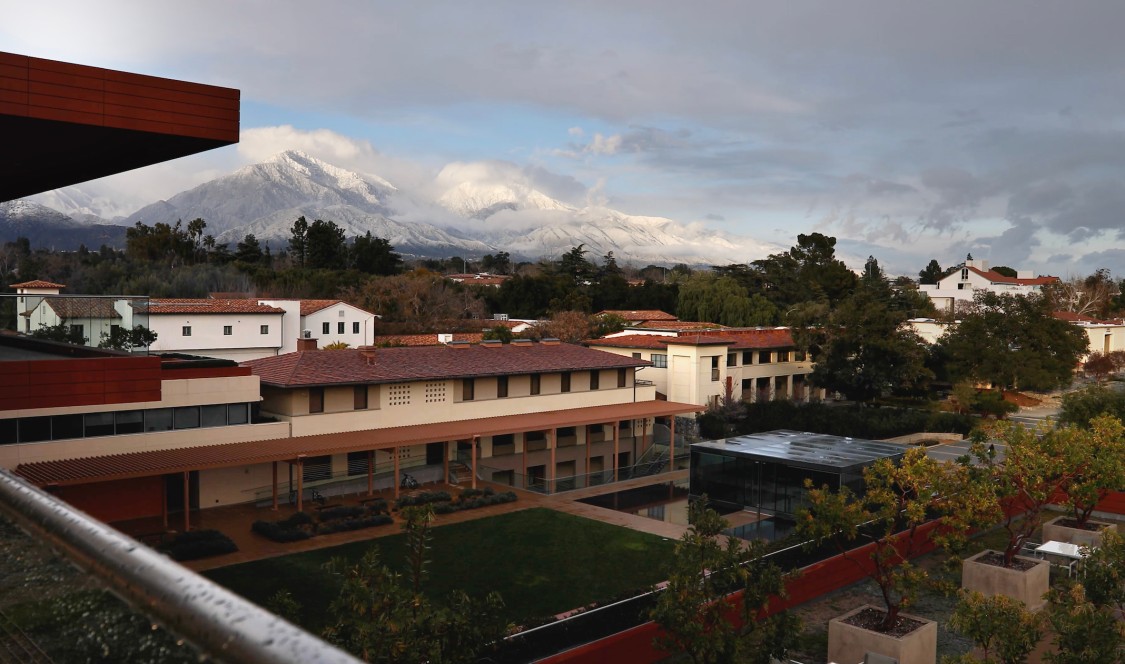Dear All:
COVID-19 has created widespread uncertainty for each of us.
Even as we closely track the evolving public health conditions and responsive policies, we cannot predict the future.
At the same time, knowing that you are wondering and worried about what CMC will look like going forward, I wanted to share with you our current thinking and approach.
Let us start with our fundamental commitment.
CMC is committed to the fullest, earliest restoration of our close-knit, on-campus residential community and our rigorous, in-person liberal arts curriculum and leadership programs.
This is our priority.
And our challenge.
One we will overcome.
To succeed together, we need a practical plan that protects the health and safety of our community and adapts effectively to the widest range of circumstances.
On one end of the spectrum is a favorable scenario of manageable, modest health risks and the ability to resume normal operations with few restrictions. We do not require any special planning for this case; we are fully prepared to resume. Sadly, this scenario also is the least likely. Realistically, a full improvement of public health and complete relaxation of restrictions are unlikely to occur by mid-to-late August 2020.
At the other end is the potential continuation of major health risks and strong public restrictions on our ability to resume our desired on-campus program. This scenario is simply out of our institutional control. The College cannot restore a full residential program until the most restrictive public physical distancing restrictions are relaxed.
In between these two scenarios is an intermediate case: diminished, yet persistently material health risks and a modest relaxation of physical distancing requirements. From our vantage point today, and subject to sudden change over time, we believe this is the most likely scenario. Improvements in public health may be gradual, not sudden, and likely to fluctuate. Responsive restrictions may ebb and flow and relax over time. Testing and tracing capabilities may be more widespread. Developing an on-campus program for this likely situation will be challenging.
Our approach is to develop a universal design for this more likely, more difficult situation, so that we have a strong plan for any on-campus scenario as conditions may improve (or deteriorate).
Here are the major components of our planning.
Residential
Our leadership team is engaged in planning exercises for each facet of student life, including more dispersed living arrangements through options we have obtained to expand housing and adjustments in athletics and recreation, dining, student activities, health care, and academic support. We are also investigating the expansion of testing and tracing capabilities, cleaning and sanitation, preventive behaviors and hygiene, among other necessary considerations, to ensure that we have an effective, safe plan to increase or decrease social density and interactions as needed or allowed over time.
Academic
Our academic leadership and faculty are all working on course designs that can be taught in different situations, depending on how much physical distance is required or how many students cannot return to campus or be in class for reasons outside of their control. This includes teaching in larger classrooms (or even outdoors) to create greater physical distance between participants, hybrid classes for students who cannot be on campus for limited or extended periods of time, and flexible virtual tools to enhance learning and academic support. We are upgrading our capabilities in instructional design and technology and working collaboratively with departments to develop the most effective, adaptable curriculum.
Financial
The College is in a very strong financial position. We will weather the current storm and uncertainties ahead to provide the best learning experience in higher education. In our response to COVID-19, we have already absorbed significant costs this year. For 2020-2021, we have a strong mitigation plan for any and all shortfalls. We are studying a wide range of responsible financial adjustments, including freezes on hiring, salaries, spending rates from endowment, annual contributions to funding for renovations of facilities, and other measures for the most severe scenarios.
In each financial decision, we continue to put the highest priority on our students and their families. This includes spring room and board reimbursements for those on aid, along with increased support for summer internships, experiences, savings, and financial aid in the near future. Funding from the federal CARES Act and the CMC Crisis Response Fund will directly support students. We will also implement our new post-graduate Impact Fellowship to support our graduating seniors who are entering a very challenging job market. In sum, we have sustained confidence in our financial strength and the fullest support for our students and their families.
In the development of these residential, academic, and financial plans, our ability to persevere through COVID-19 will depend squarely on our shared creativity and determination. It will also depend on our mutual trust and patience before we make any individual or collective determinations about the fall semester.
We will be in close touch and provide you with sufficient notice of our decisions.
Please continue to share your questions and concerns and contribute your best ideas.
Most of all, stay healthy and safe.
Very best,
Hiram

